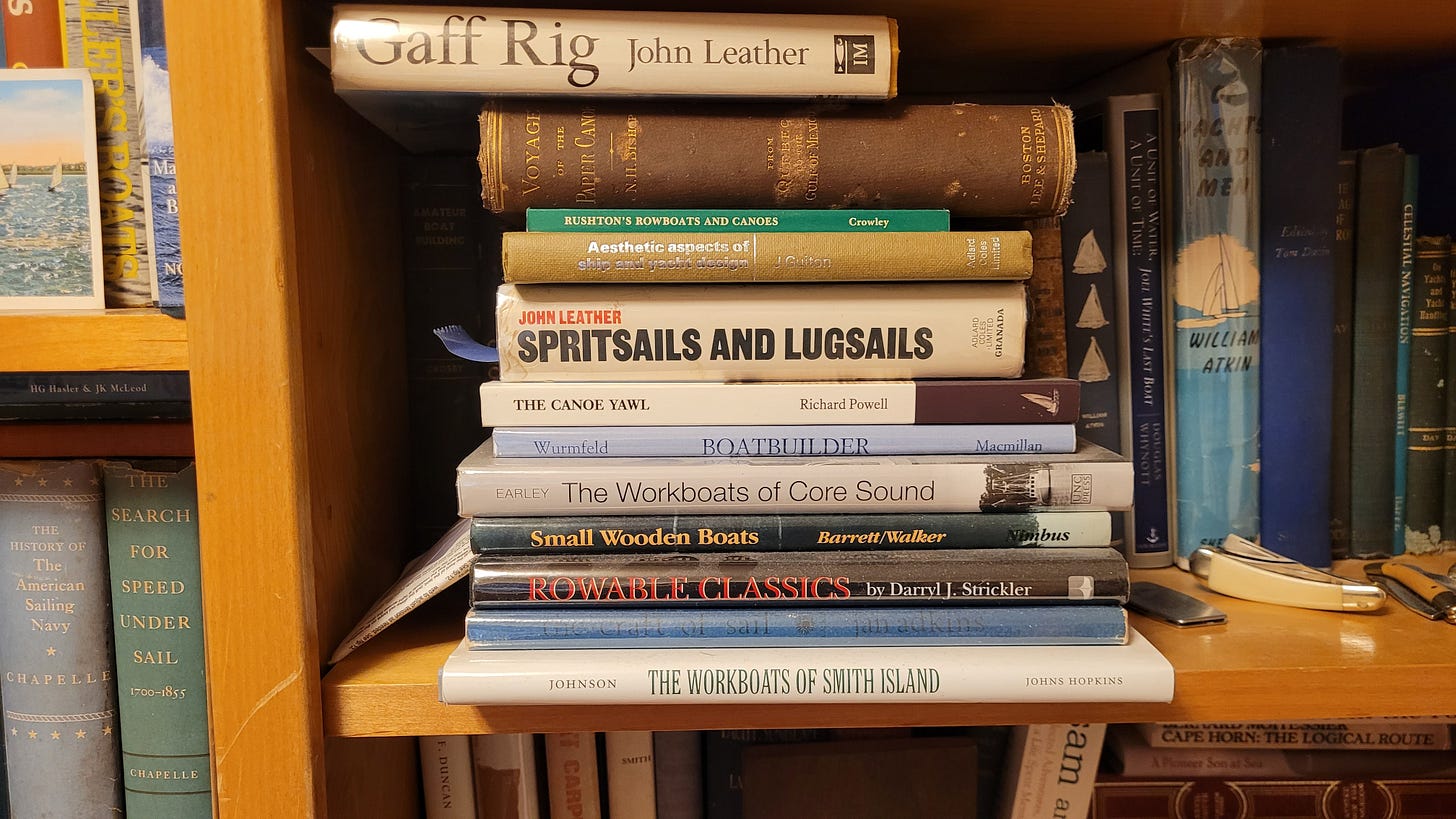Book Stacks 4
More reader responses...
Michael Jones hit us with a series of book stack photos. Suffice to say this stack pictured is but a fraction of his nautical library! That second book is Voyage of the Paper Canoe “A GEOGRAPHICAL JOURNEY OF 2500 MILES, FROM QUEBEC TO THE GULF OF MEXICO, DURING THE YEARS 1874-5.” You can read it online for free here.
And there’s the classic Rushton’s Rowboats and Canoes and Richard Powell’s The Canoe Yawl. Wait a minute, we’re picking up on a theme…
This stack from Brian Forsyth is delicious! There’s the damn-near-impossible-to-find New Zealand Backyard Boatbuilder book from John Welsford (don’t loan that one out, Brian…), Little Ships and Shoal Waters by the amazing Maurice Griffiths, and another rare title, the beautifully illustrated Narrow Waters by Dee Carstarphen. Plus lots of good Wayfarer reading with Ocean Crossing Wayfarer and Dinghy Cruising.
And the Gear List of the Golden Moon is an excellent resource. It helped inspired our Packing a Small Boat feature. Here’s a fun video link for that book.
Tony Mee threw the kitchen sink at us as well, with this book shelf shot. He writes: “More a bookcase than a stack. It represents about 40 years of boat book collection. Although I have always had boat books from when I was a teenager, it was the purchase of Bolger Boats from a Melbourne bookstore in the early 1980s that really triggered further book acquisitions. At the time, I was racing offshore on an IOR racer and building a conventional fibreglass sloop with a friend. Over time Bolger Boats worked its quiet magic on me and encouraged me to think about and look at boats through a different set of lenses.”
Here’s another practical, tactical stack. Dave Galleher says this is “only a partial stack. Missing are Bowditch, Dutton. Out on loan, Payson Instant Boats, Spurr’s Upgrading your Cruising Sailboat and others.”
Lots of good titles here. Loan Voyager is quite a story: “Like countless Gloucester fishermen before and since, Howard Blackburn and Tom Welch were trawling for halibut on the Newfoundland banks in an open dory in 1883 when a sudden blizzard separated them from their mother ship. Alone on the empty North Atlantic, they battled towering waves and frozen spray to stay afloat. Welch soon succumbed to exposure, and Blackburn did the only thing he could: He rowed for shore. He rowed five days without food or water, with his hands frozen to the oars, to reach the coast of Newfoundland. Yet his tests had only begun.” •SCA•
More stacks soon! —Eds





A couple of these folks actually have more books than I do.